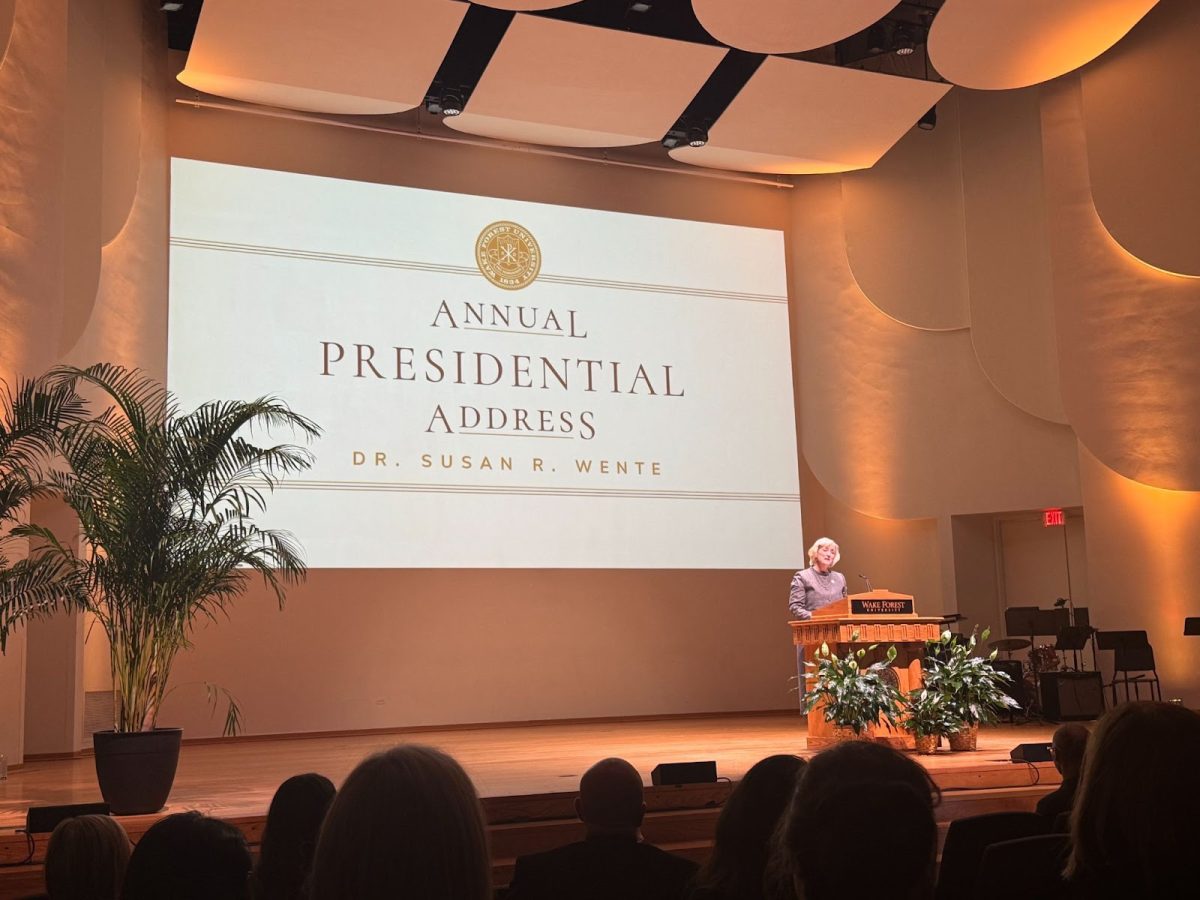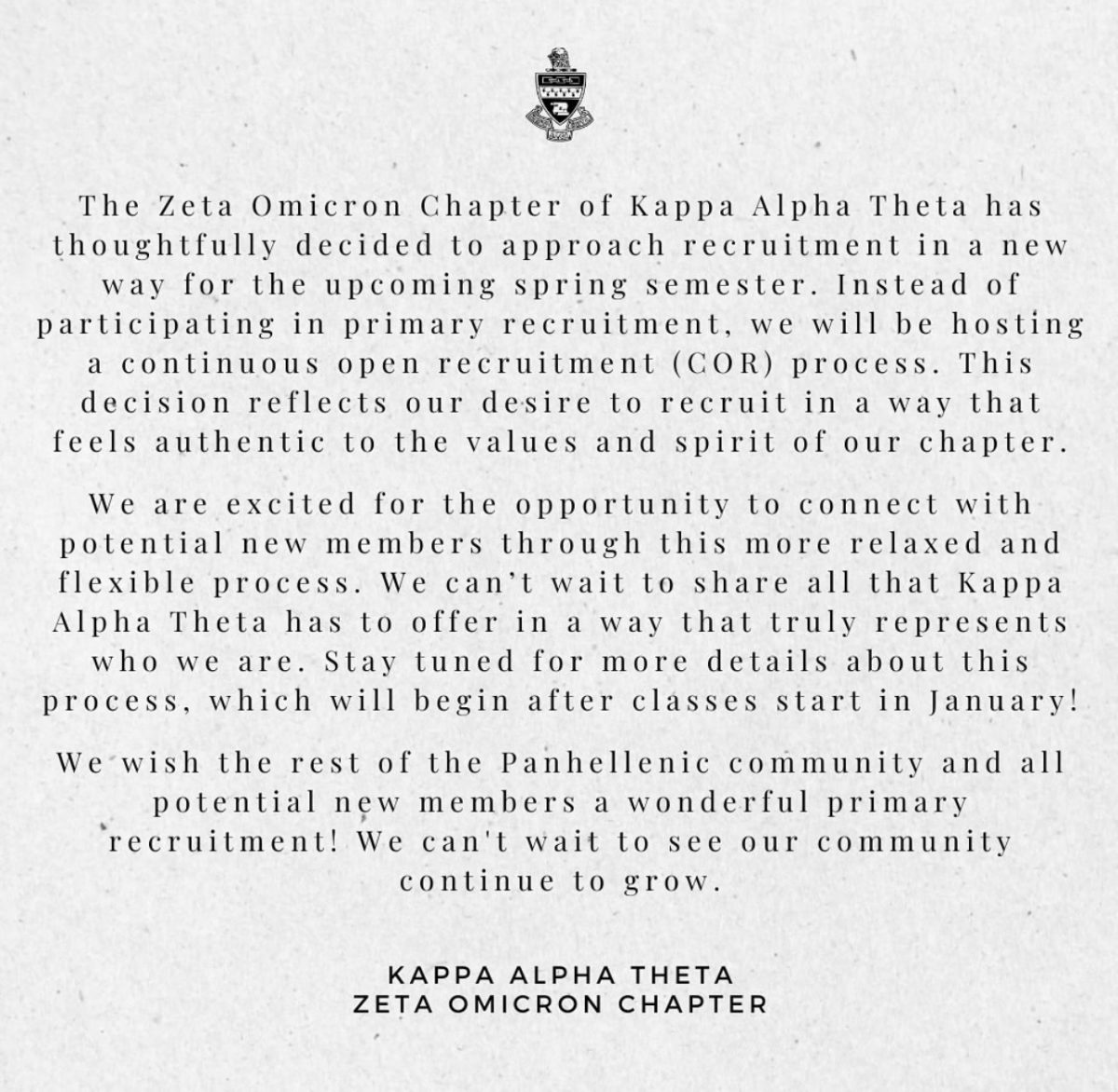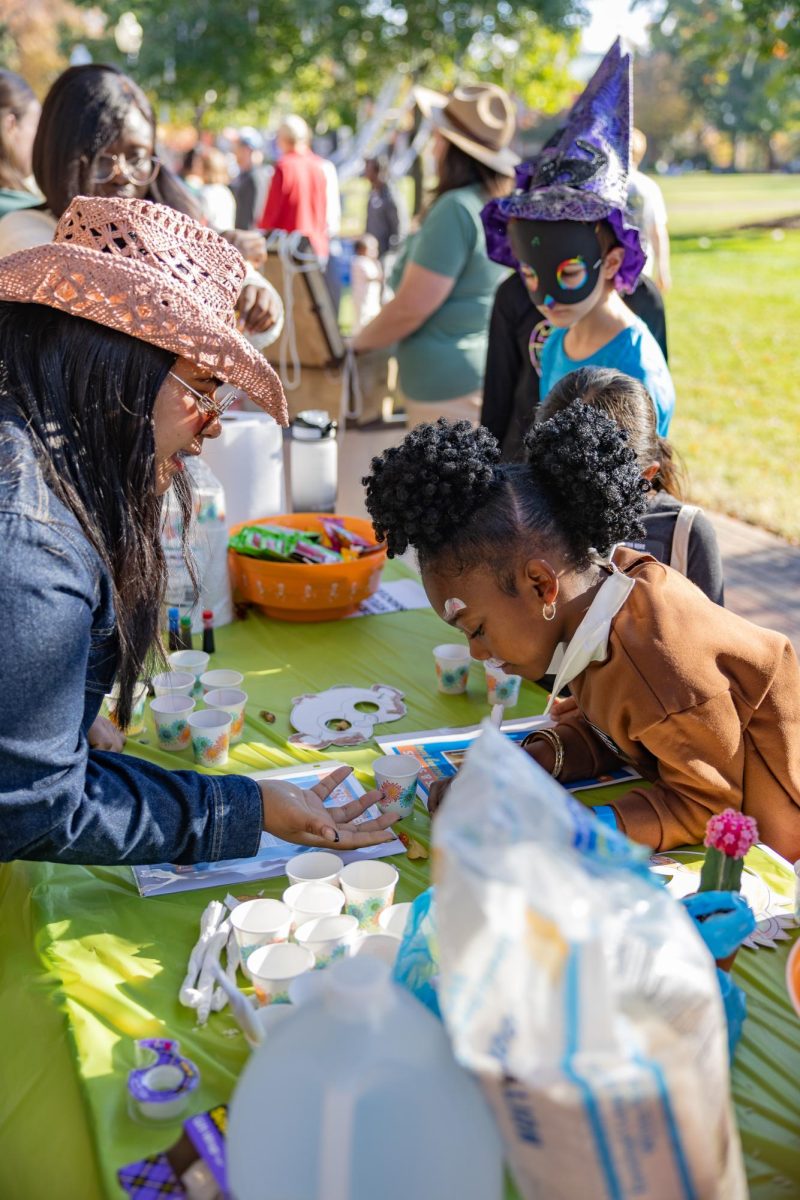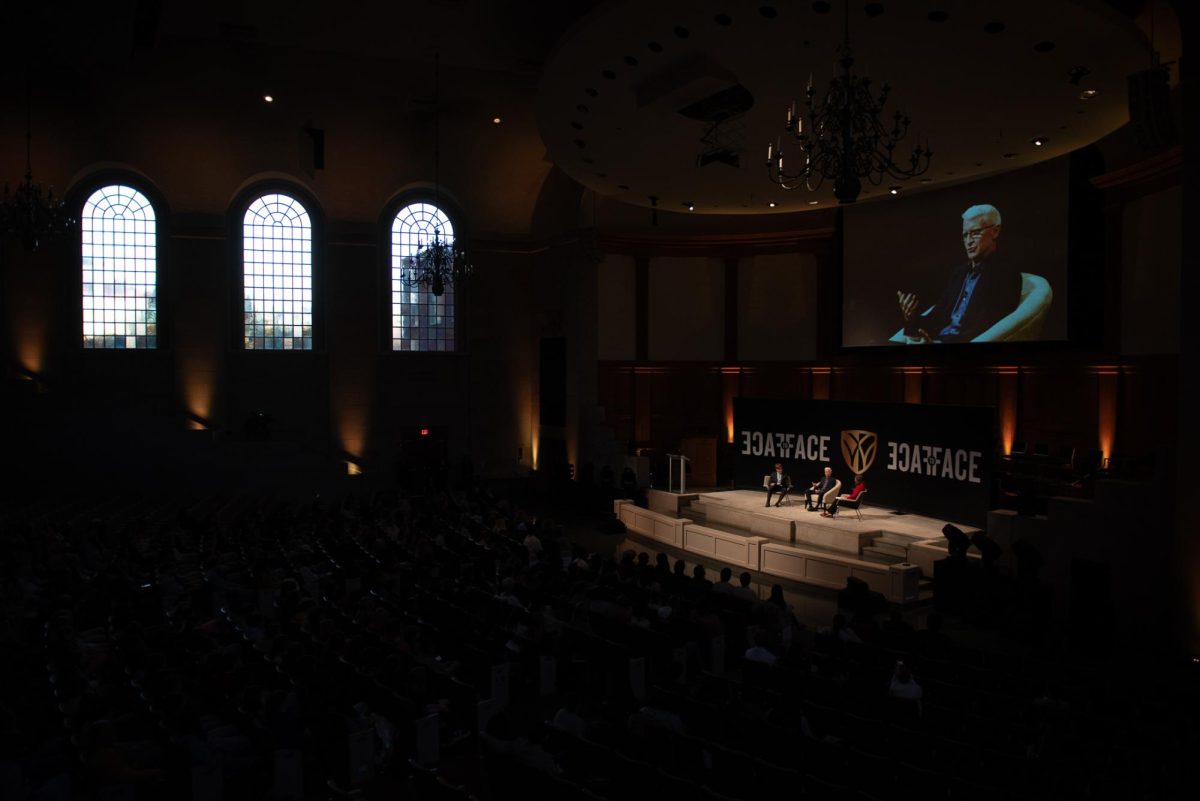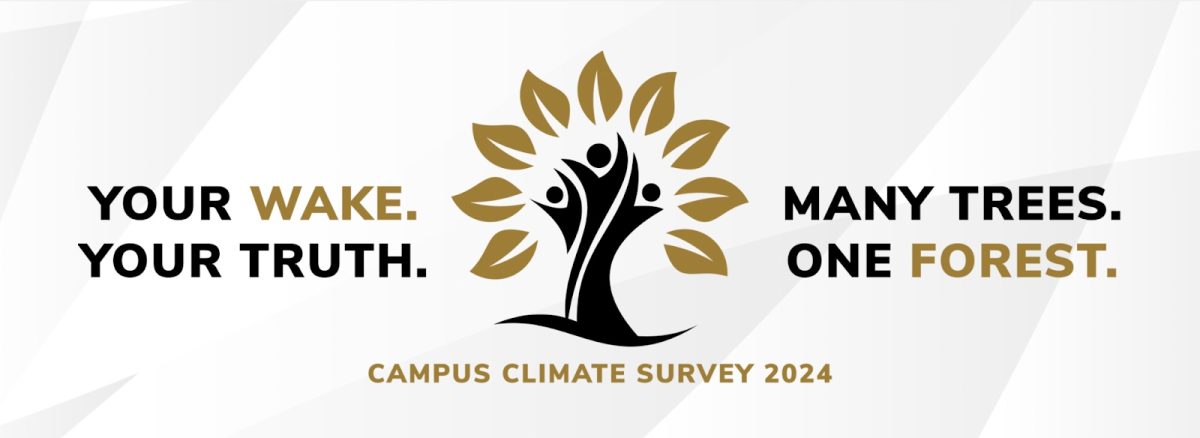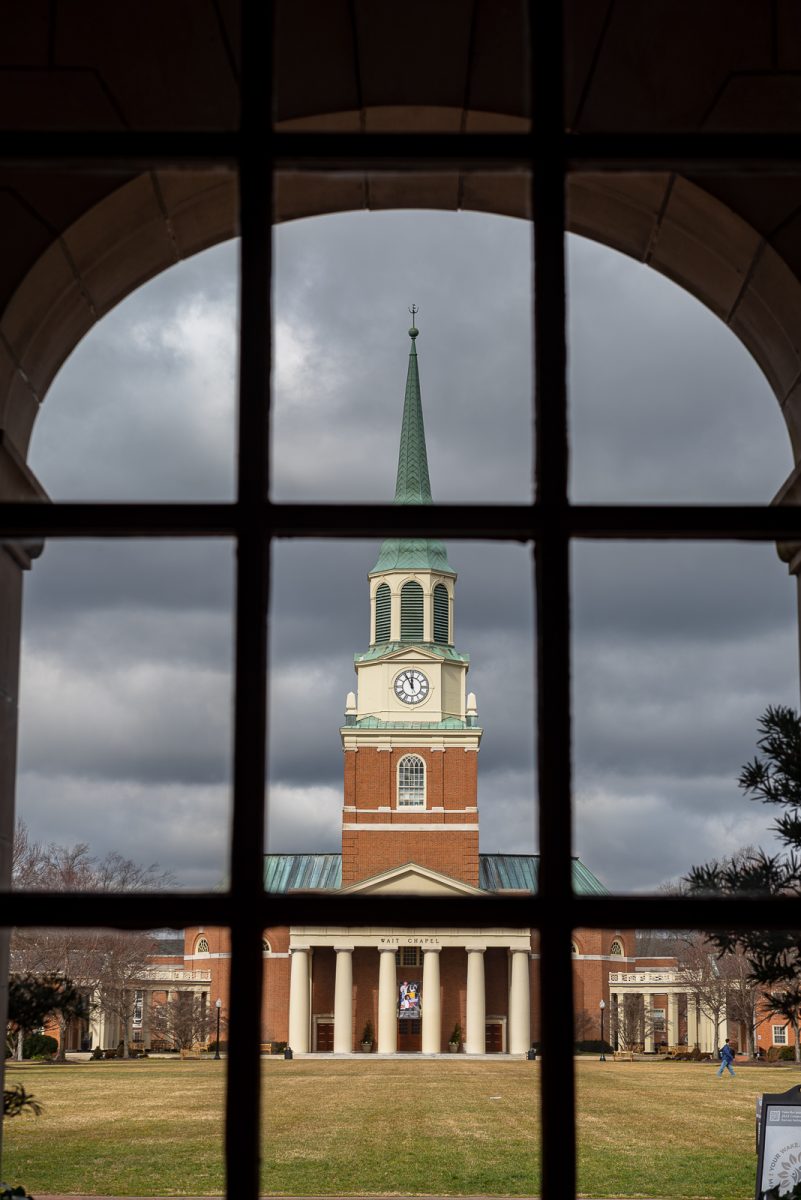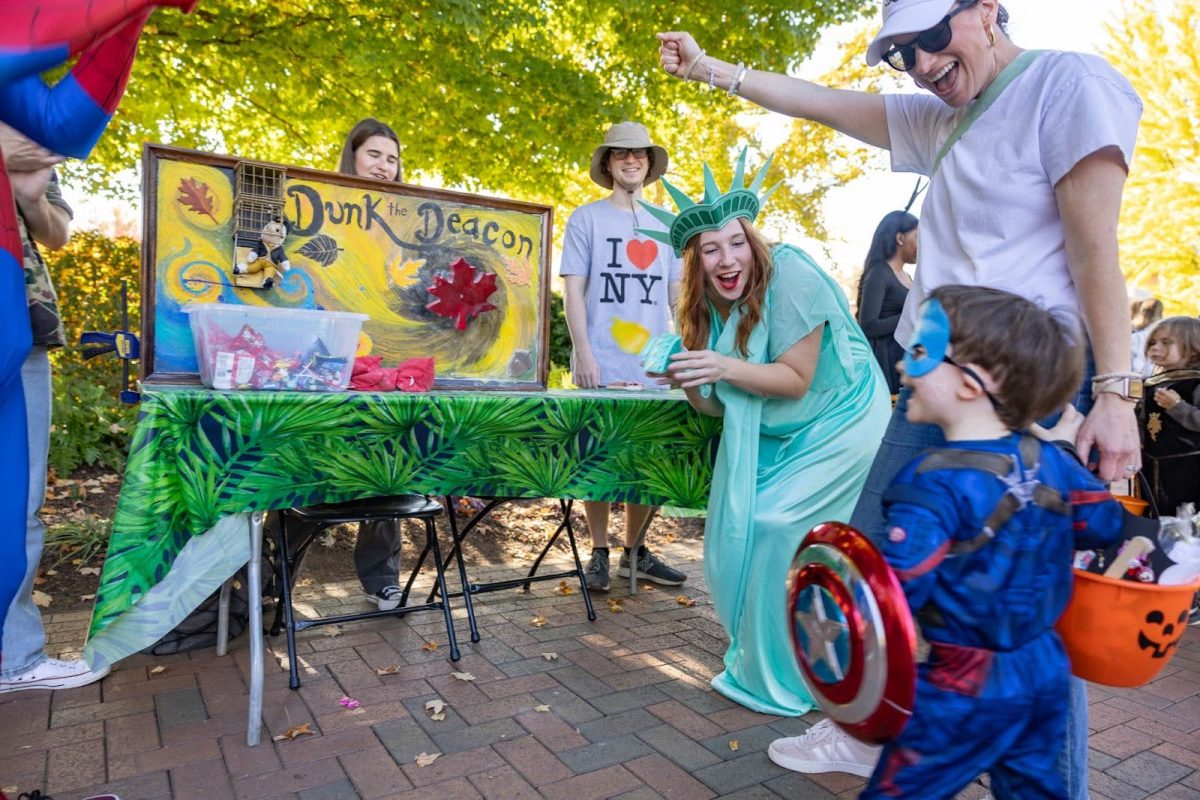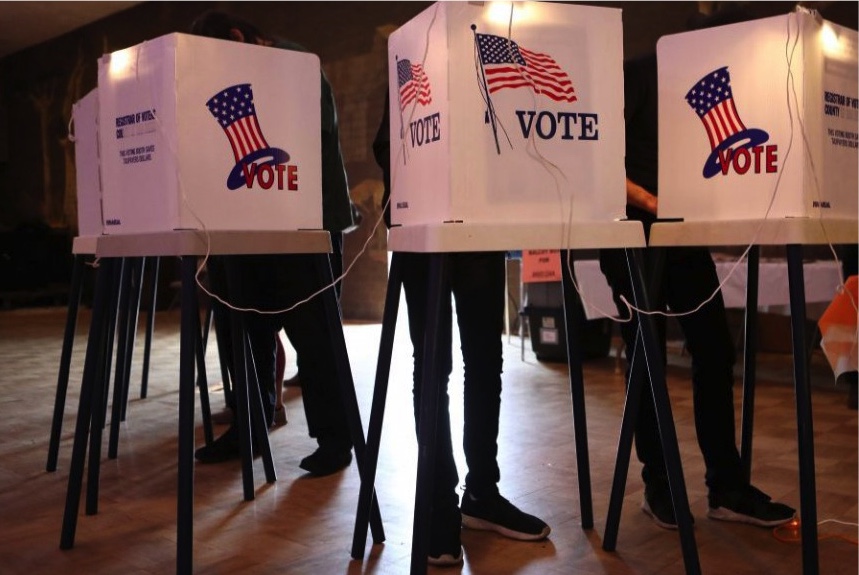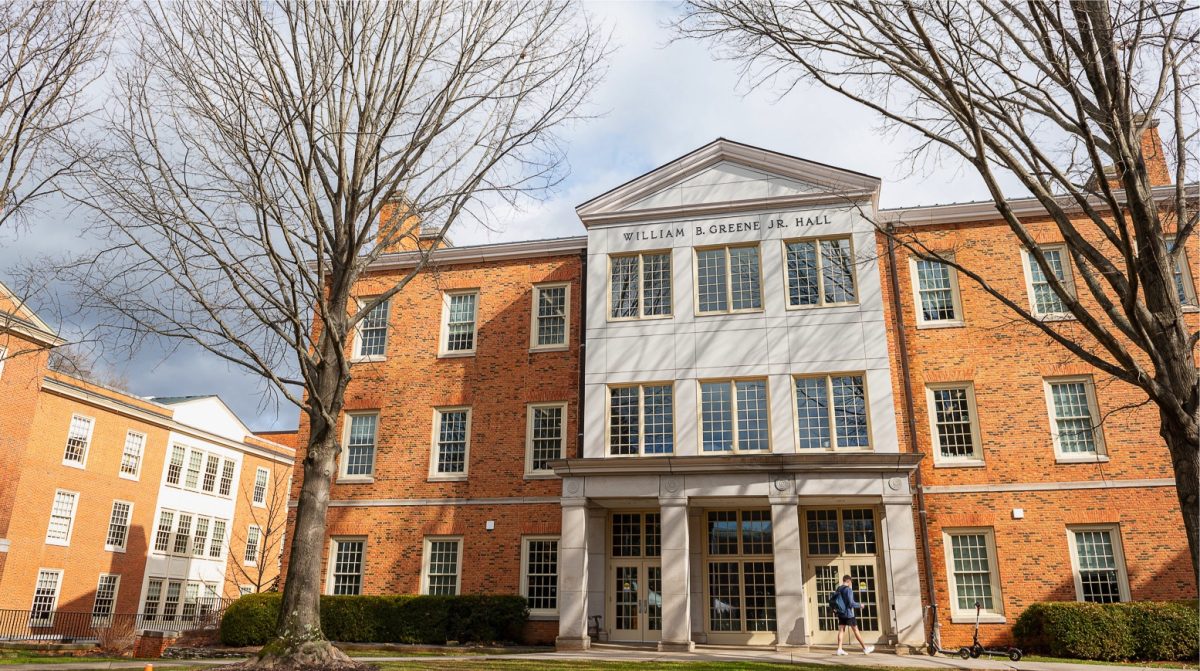Last Wednesday March 15, the Women’s, Gender and Sexuality (WGS) Studies Department and School of Divinity hosted the Sixth Annual Student Research Symposium on Gender and Sexuality in the ZSR Library auditorium.
The day-long event featured seven moderated sessions of scholarly presentations and two creative works by Wake Forest students.
“It was good this year that we had two plenary speakers, [Professors] Melissa Harris-Perry and Angela Kóczé, framing these dialogues and speaking to what the idea of freedom means, especially as connected to identity,” said Wanda Balzano, chair of the WGS Department.
Harris-Perry and Kóczé delivered the opening and closing remarks, respectively, provoking attendees to contemplate this year’s theme: “Feminist Solidarities: Challenging Systems of Oppression and Privilege.”
Subject matter ranged from models of solidarity and empowerment to deconstructing masculinity, queer identities, health, sex and resisting violence. During each panel, three to four student scholars delivered 10-minute research presentations and interacted with the audience during question and answer sessions. Divinity and undergraduate WGS students moderated all panels.
The School of Divinity and WGS Department share a history of collaboration.
“There was a great partnership already in place when we had the Phyllis Trible Lecture Series,” said Balzano. “Phyllis and the rest of the committee I was on invited feminist scholars in theology to campus….After [the conferences] we had students still talking and wanting to continue the conversation.”
“[Professor of theology] Michelle Voss Roberts said ‘Wouldn’t it be nice if we had a conference just for students?’ So we did and it was a success.”
The symposium’s sixth iteration inspired as much student enthusiasm as past years, according to Balzano.
“Some students were encouraged by faculty to apply but others responded to the call for papers right away because they had something they wanted to say,” she said. “I find it so empowering and moving. Senior Fatima Habboub, for instance, wanted to say that Muslim women don’t need saving.”
Later in the day, graduate student Alainna Liloia further contextualized misconceptions between Muslim and Western feminists through a case study of Islamic feminist movements in Kuwait.
In the first half of the day, though, audience members encountered scholarship focused on the Black Lives Matter movement’s use of alternative media, fighting queerphobia in small, rural communities, the history of LGBTQ activism at Wake Forest and various literature analyses.
Midday, attendees snacked on boxed lunches prepared by local Syrian refugee women, and third-year divinity student Demi McCoy performed original spoken word poetry before the fourth panel about the politics of gender and health. Student scholars compared medical consent to sexual consent, discussed the politics of childbirth and outlined the history of community nursing in Forsyth Country.
Afterward, students shared their contributions to scholarly research on gendered power dynamics as related to sex and sexuality through the lens of pornography, businesses such as Hooters, reggaeton music and biblical verse.
Junior Libby Williams then provoked a lively discussion, screening an original creative video in which she critiques sorority rush by highlighting the gendered expectations she asserts are fundamental to the institutionalized process.
To the audience’s enjoyment, junior Emmie Davidson screened the scene from the popular television series Atlanta that inspired her project on the abuse of incarcerated LGBTQ and gender nonconforming people.
Her presentation was one of several in the final two panels which also featured student scholarship on femicide, race avoidant and colorblind practices in K-12 education, indigenous models of feminist solidarity, and liberatory mujerista theology.
In her closing remarks, Kóczé expressed that the symposium exists to affirm the value of student’s work and knowledge creation.
Balzano concurs.
“As professors we should foreground our students and give them more opportunities to engage not from our strategy and format but from [theirs],” she said. “We can provide support and be facilitators of these types of events.”
In line with this philosophy, Balzano and divinity professor Elizabeth Gandolfo encouraged students to serve on next year’s organizing team while thanking all those involved this year.
Balzano and Gandolfo, who joined as a co-organizer last year, are committed to finding ways for students to learn from each other through scholarship and are grateful for the ZSR Library’s decision to dedicate an archive to the annual symposium, preserving a record of student scholarship on gender and sexuality at both the undergraduate and graduate level.
“I love working with the divinity school faculty,” said Balzano. “They have been generous, forward-thinking and very collegial. I am also very excited about our new partnership with the Anna Julia Cooper Center.”


